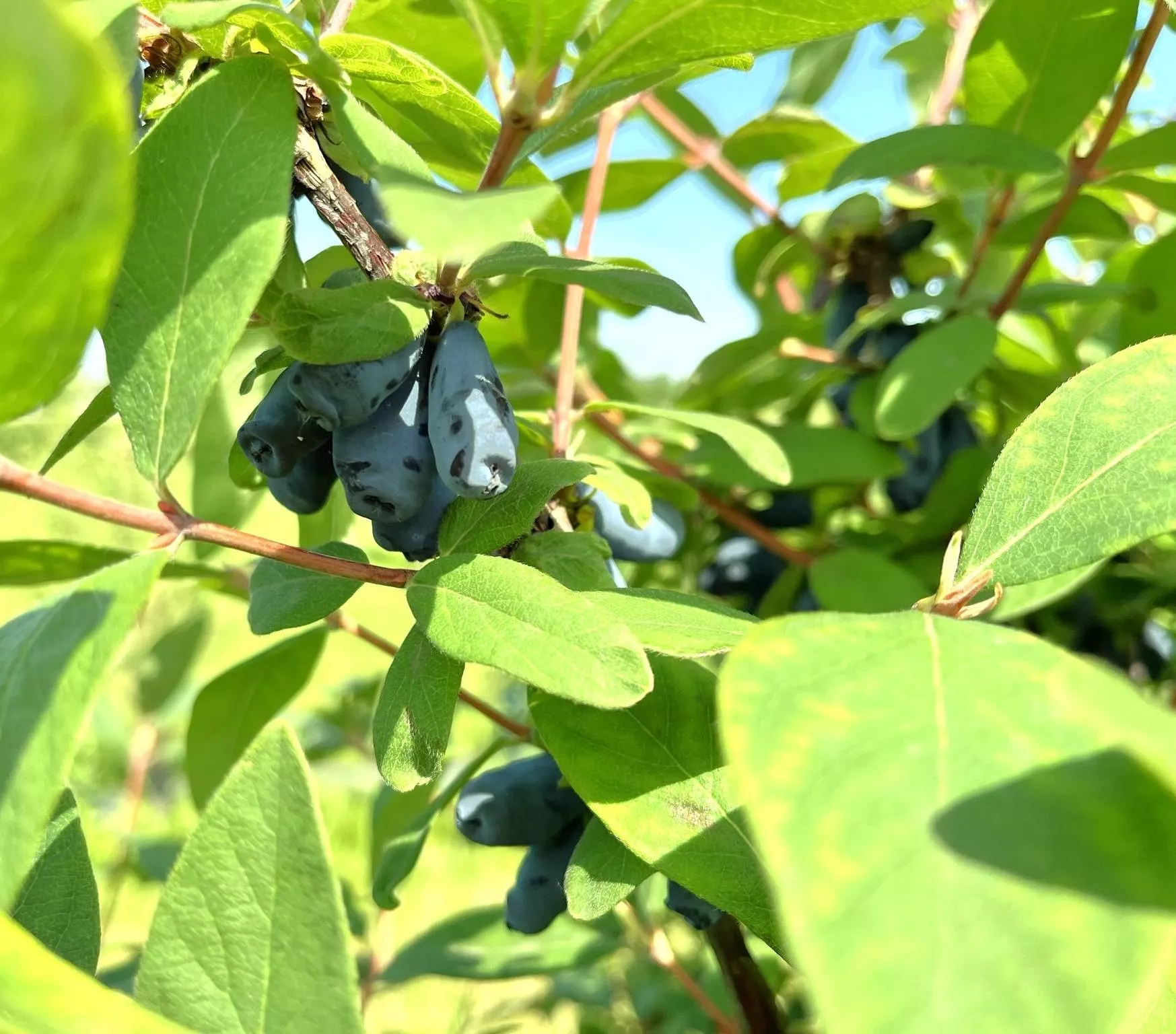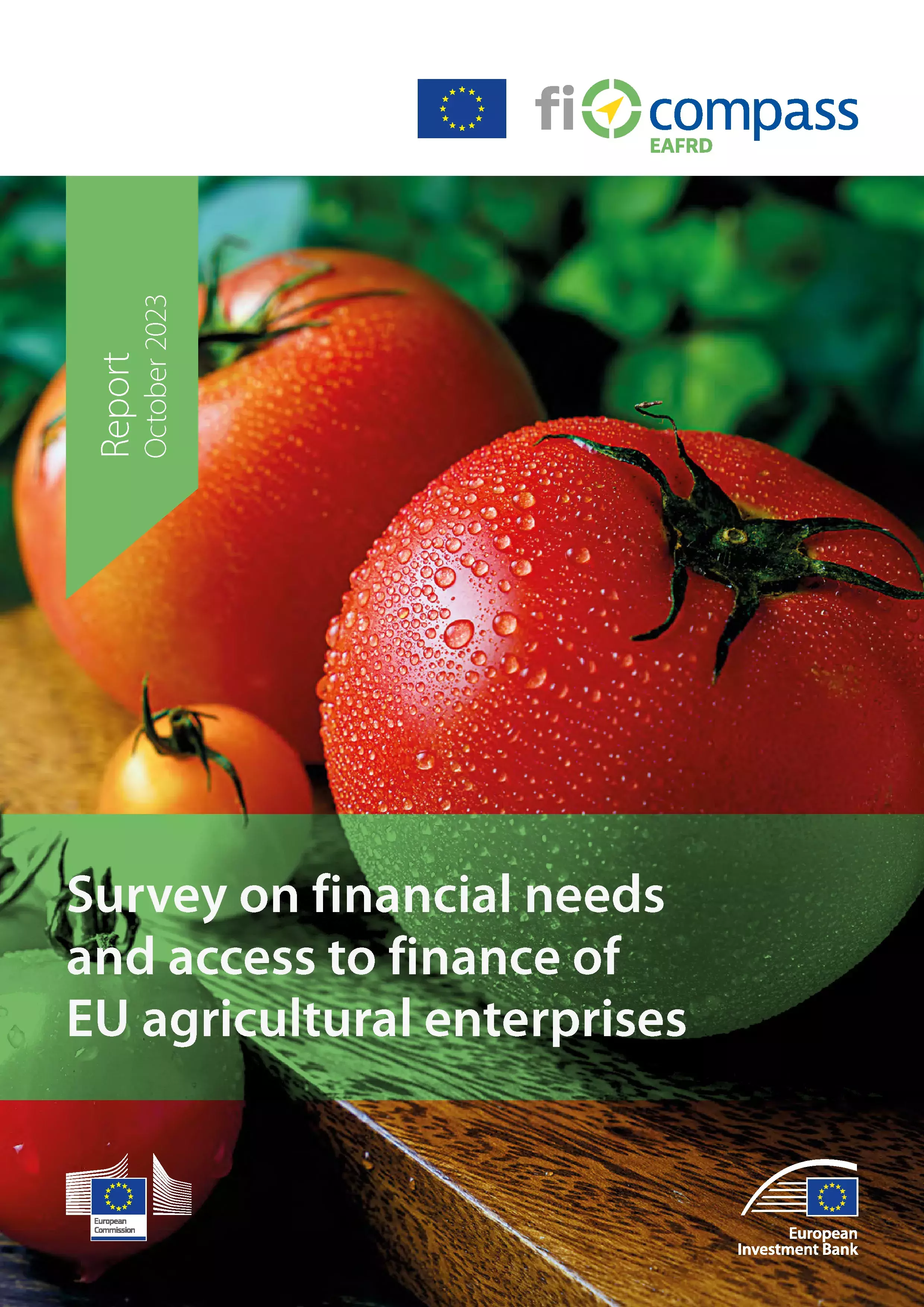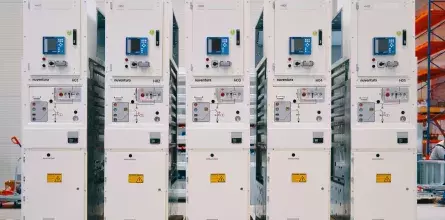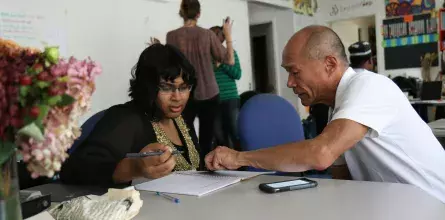Thanks to the financial backing of the Micro and small loans for rural development 2014-2020, Croatia, Ivica Babojelić, a young farmer growing organic berries in Samobor, West of Zagreb, could kickstart his project and transform his mother’s plot of land into a flourishing family farm. Since its launch in 2018, the financial instrument, set up with EUR 77.1 million from EAFRD and EUR 13.6 million of national contribution, has already helped more than 2 000 small farmers in Croatia to modernise their equipment and advance their business.
Ivica Babojelić is the happy owner of the family agricultural holding, OPG Babojelić. Boasting three hectares of thriving farmland, this agri-business is located in the Zagreb County, one of the three main regions for berry production in Croatia.
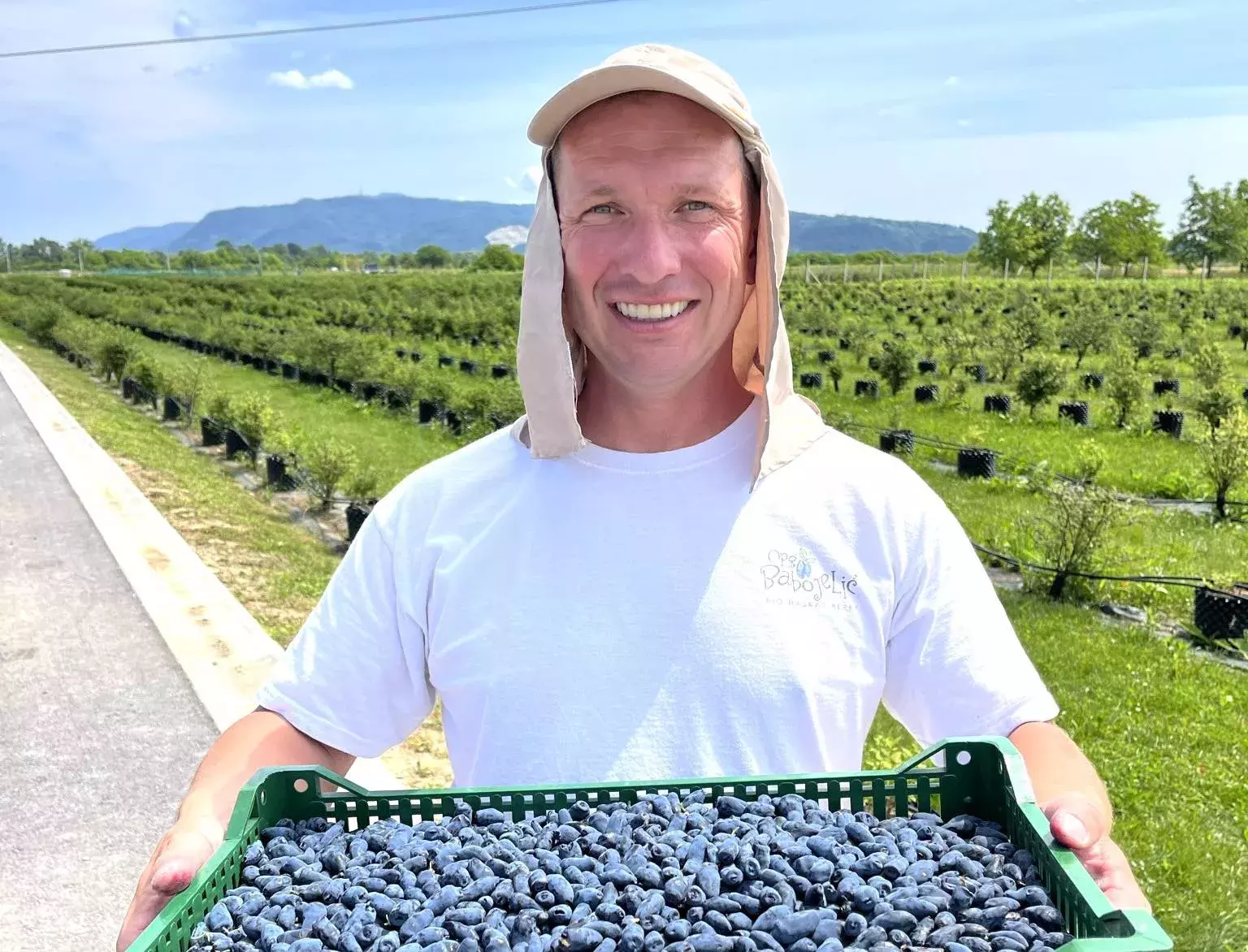
“To other growers like me, I would say: never give up, there are financial institutions such as HAMAG-BICRO that perfectly understand the needs of entrepreneurs like you and me. They can have a great impact on the development of your project”, Ivica Babojelić, owner of OPG Babojelić.
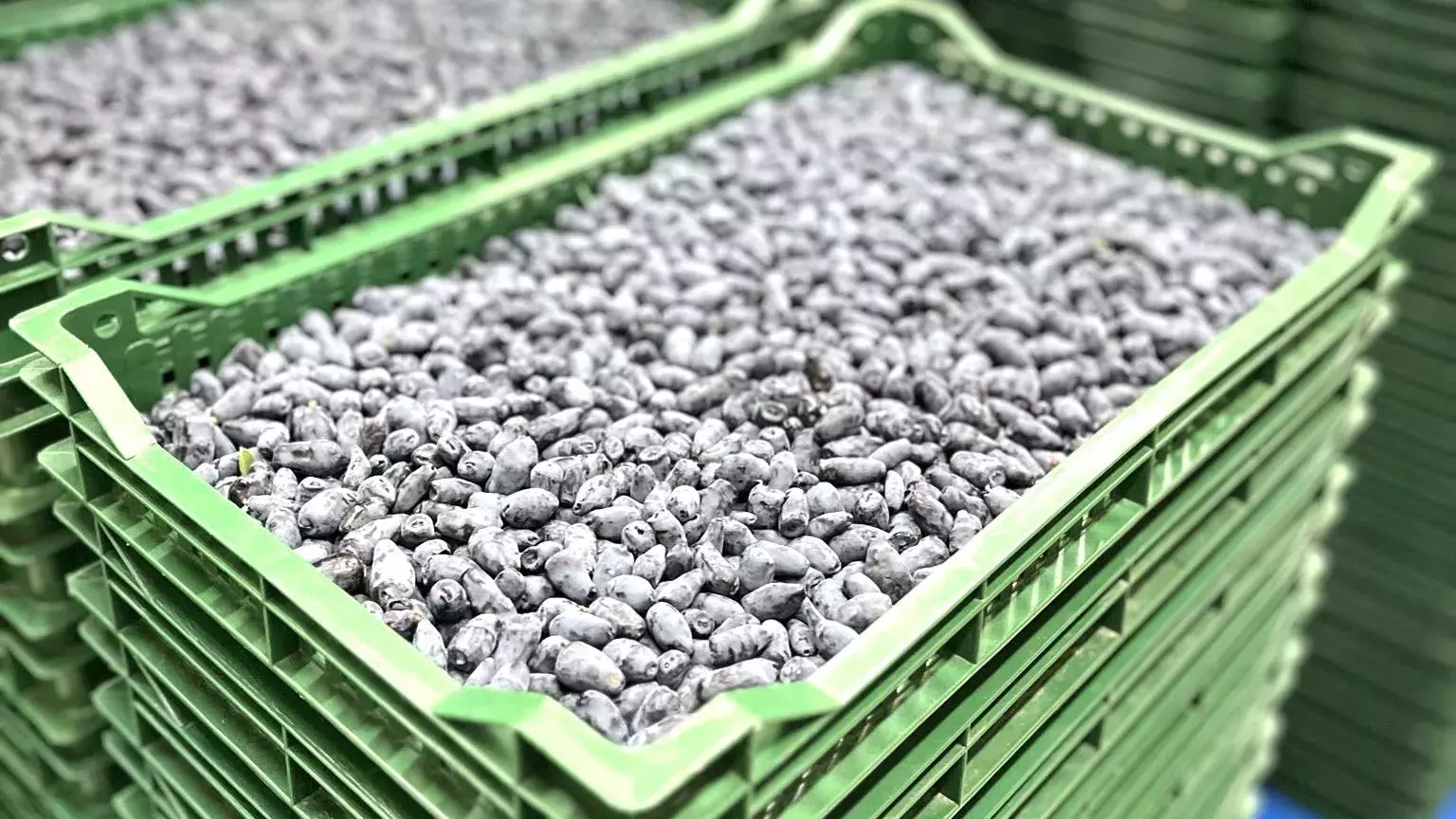
Haskap is a variety of berry that copes well with variations in temperature. The word ‘haskap’ originates from the indigenous Ainu people of northern Japan where the berry, now used in North America, comes from originally.
“I started growing berries in 2016 in Samobor where I was born and grew up. Starting out, I owned a small part of land that my mother used for gardening. When I decided to grow Haskap berries, a variety extremely tolerant to temperatures, I started to buy pieces of land, bit by bit, from neighbours to expand and consolidate the land I already owned”
the 38 year old berry grower explains with enthusiasm.
“I researched fruits with good health benefits that would ripen early in the year so that I could offer customers something after the long winter, when everyone is eager to eat fresh fruit”, he goes on to say. As berries are a seasonal fruit, Ivica, for whom it was very important to buy new equipment and modernise his farm, invested in a processing building and cold store to produce, transform and sell his products all year round.
Thanks to hard work and an entrepreneurial spirit, OPG Babojelić is now a successful family business. Ivica’s company delivered 15 tonnes of Haskap berries in 2022, almost x5 more than the three or four tons when he first started out together with his wife and seasonal workers.
As the business was doing well, he recruited two additional employees to work in the building where processing happens all year round. He also hires 10 to 15 additional workers during the harvest season.
His produce is sold mainly locally to organic shops, pharmacies, and individuals that are always happy to find, not only fresh locally produced organic berries, but also excellent and attractively packaged frozen berries, cold-pressed juice and low-calorie jams and liqueurs produced by his farm. A small part of the production is also being exported to Slovenia and Austria.
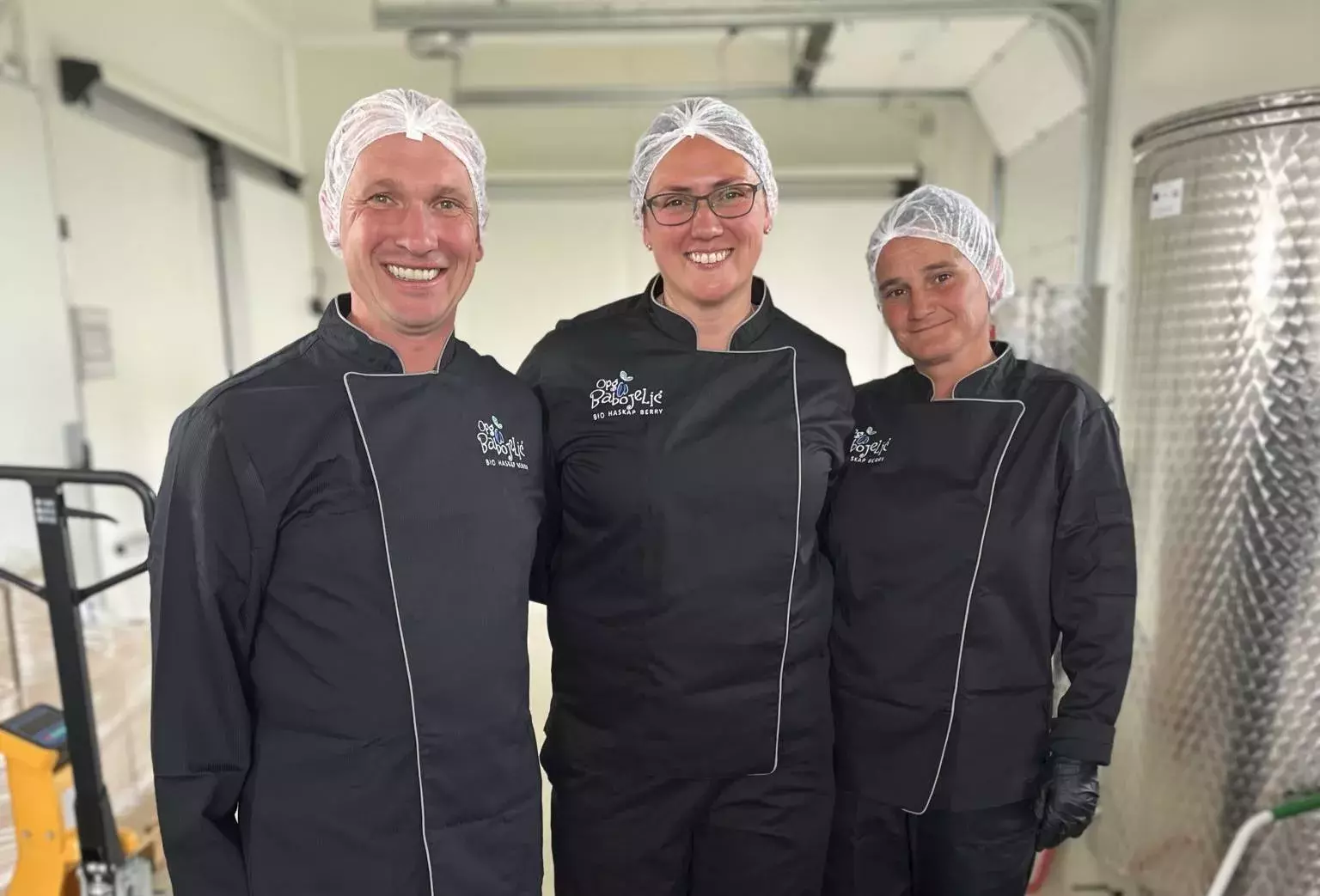
Ivica, his wife Ivana, and their colleague Sandra in front of the new juice production equipment purchased thanks to the EAFRD loan.
A risky business
Though Mr. Babojelić can be proud of the hard work carried out so far, he has experienced turbulent times, especially when looking for financing to expand.
“I knocked on the doors of several commercial banks but the message was always the same: agriculture is too risky”, he explains, a leitmotiv highlighted in the recently published survey on financial needs and access to finance of EU agri-food micro, small and medium sized enterprises presented during the 9th annual EU conference on EAFRD-funded financial instruments in Brussels in October 2023. The survey conducted on a sample of 6 550 EU farmers and 2 389 EU agri-food businesses (SMEs) highlights a EUR 62 billion unmet demand of farmers for financing by banks in 2022. Small farms and young farmers were among the categories that struggled the most in accessing finance.
“The main issue in Croatia is the reluctance of banks to finance farms, especially small ones, due to a lack of collateral, for example, in the case that the land has low value, or the asset is already under mortgage. When banks are willing to provide support, they usually offer loans at very high interest rates. The main role of an institution like HAMAG-BICRO in this situation is to offer the right financial instrument that can help solve this issue”, says Ivan Križanović, Head of Department for Rural Development at HAMAG-BICRO, the Croatian Agency for SMEs, Innovation and Investment. The agency is the implementing body of the EAFRD-backed loans, selected by the Ministry of Agriculture of the Republic of Croatia.
Final recipients apply for the loan directly at HAMAG-BICRO and the agency manages the whole process: it receives the application, processes the loans, approves, and disburses the funds. “The huge advantage of financial instruments is that they are available at all times – in other words, farmers can apply for the loan at any time. There is no scoring or ranking of submitted requests for loans. The final decision for approving or declining a loan request is based on the financial capacity of the borrower, the project feasibility, its financial viability, and the business plan quality”, stresses Mr. Križanović.
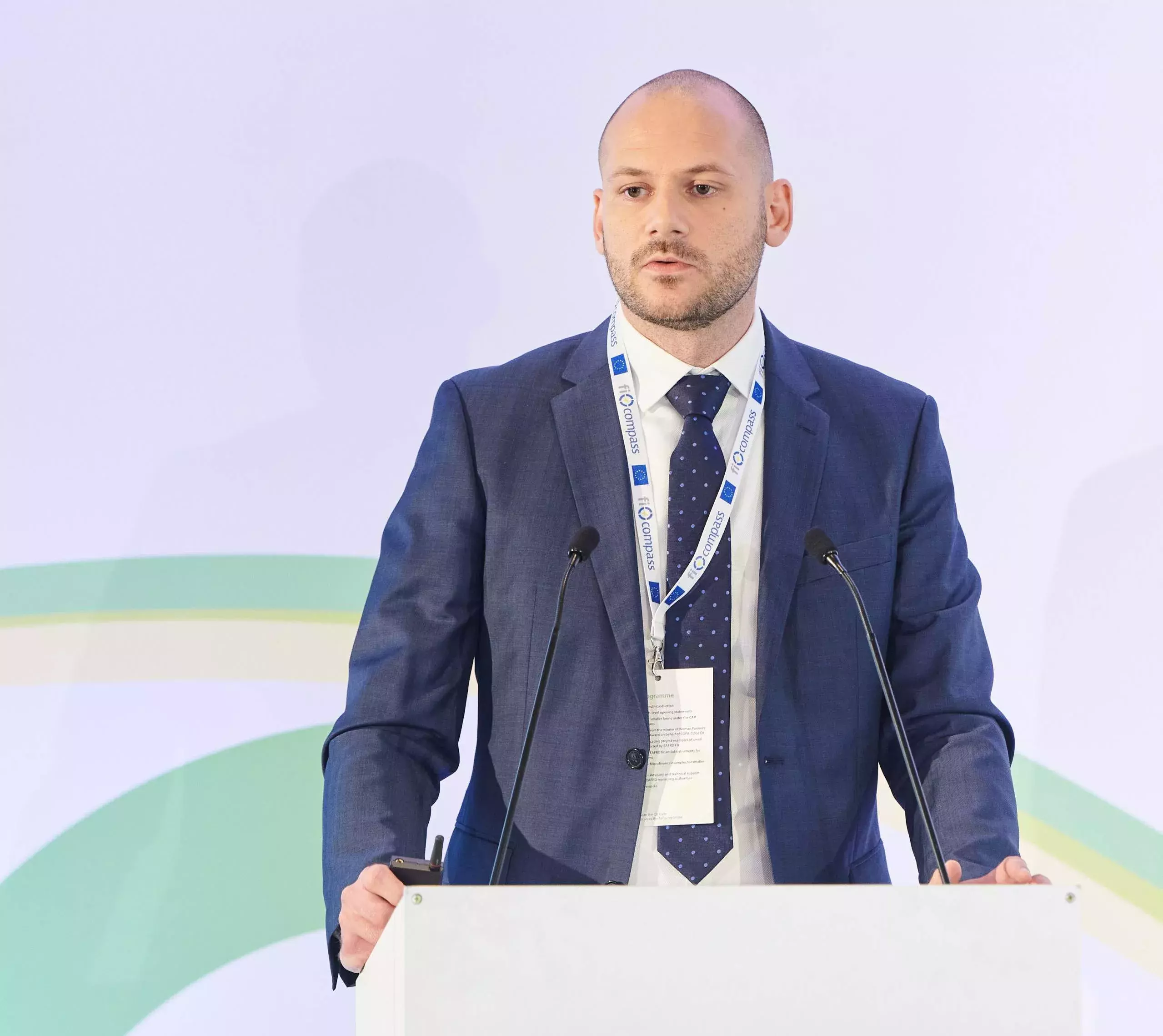
“It is necessary to maintain a good communication with farmers, to monitor the situation on the market and constantly improve and adapt the conditions of the programme to their needs”, Ivan Križanović, Head of Department for Rural Development at HAMAG-BICRO, the Croatian Agency for SMEs, Innovation and Investment.
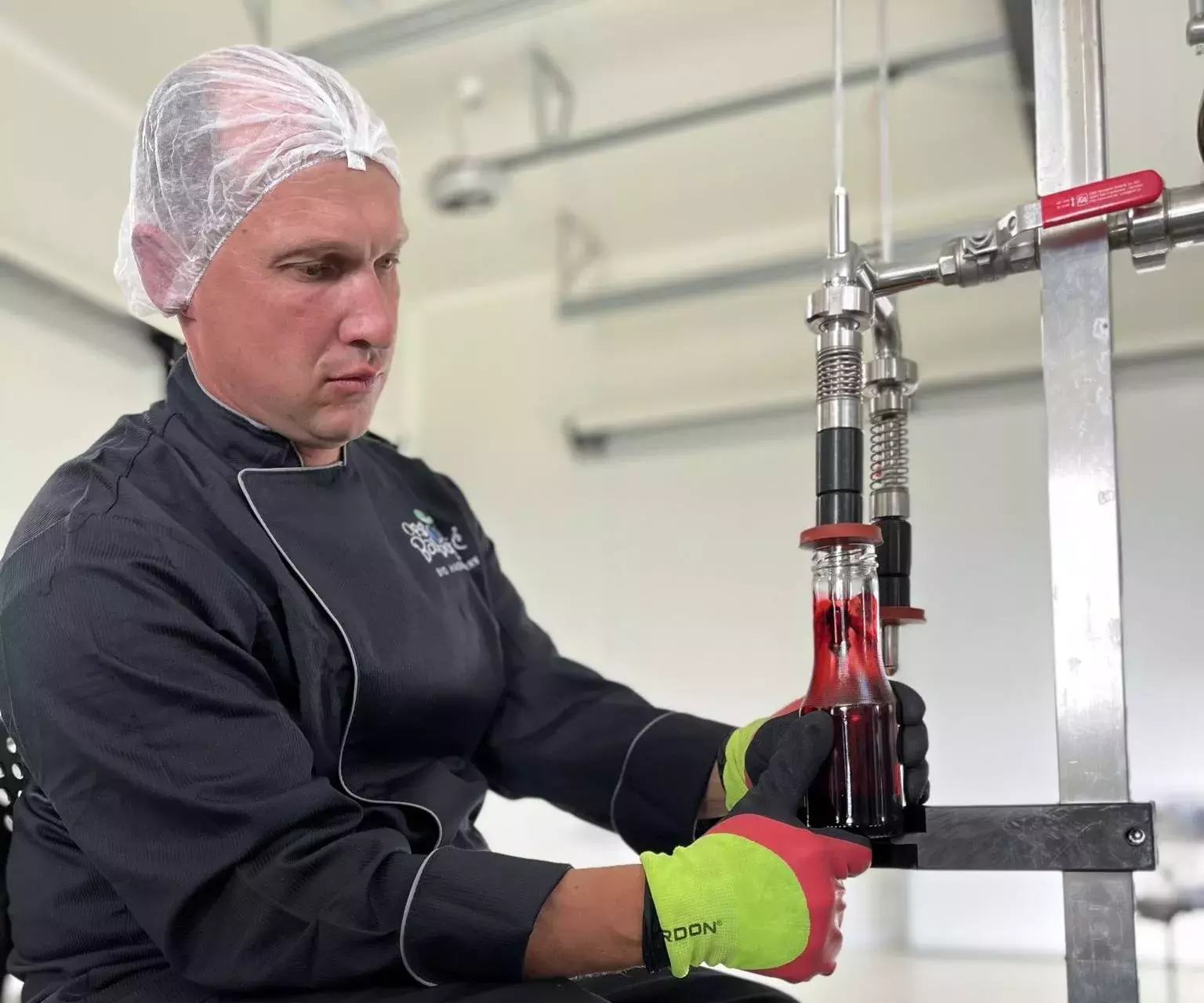
Ivica working on the new juice extractor he purchased thanks to the EAFRD loan.
EAFRD-backed loans make a difference
Ivica heard of HAMAG-BICRO’s loans through various media channels and immediately contacted them. After a “very quick and easy” appraisal process, he received a first loan of EUR 50 000 that helped him finance a juice production line as well as another line for sorting frozen berries.
“HAMAG-BICRO has fully digitalised the process for submitting loan applications. We have an online platform where farmers can upload all required documents; that means less paperwork for them as well as a faster and easier access to financing”, points out Ivan Križanović. In 2023, the berry grower was granted a second EUR 100 000 loan for the financing of a state-of-the-art jam production line. In addition to these two loans provided by HAMAG-BICRO, Mr. Babojelić received state aid of EUR 56 000.
“It’s great because we got a grace period of 18 months as well as a very low interest rate at 0,25% and a repayment time of 10 years. Thanks to this backing, we can produce not only fresh products but also conserves throughout the year. This also enables us to provide work to our employees all year round and not just for a few weeks during the picking season”, he says while he goes on to say: “I would really like to thank HAMAG-BICRO staff for their trust, continuous support and for answering all the questions that I had during the appraisal process. The investment had a great impact on our company. Without this support, we would not have been able to modernise our farm because it would have been too big an expense in a too short period of time”.
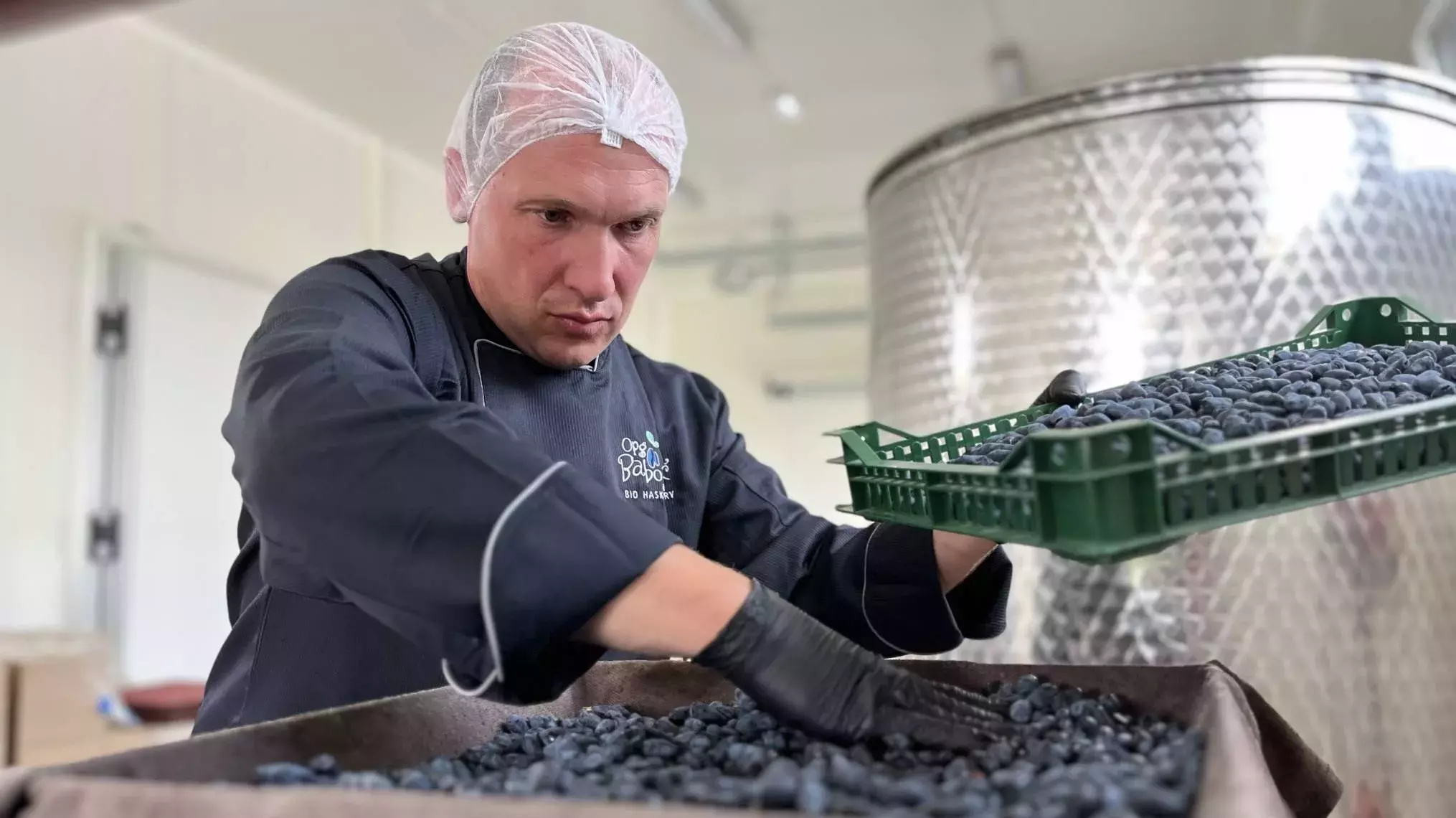
In Ivica’s organic farm, nothing is thrown away. The best fresh berries are sold in stores, and the ones that are not “first class” are used to make juice, while the leftovers are used to produce jam.
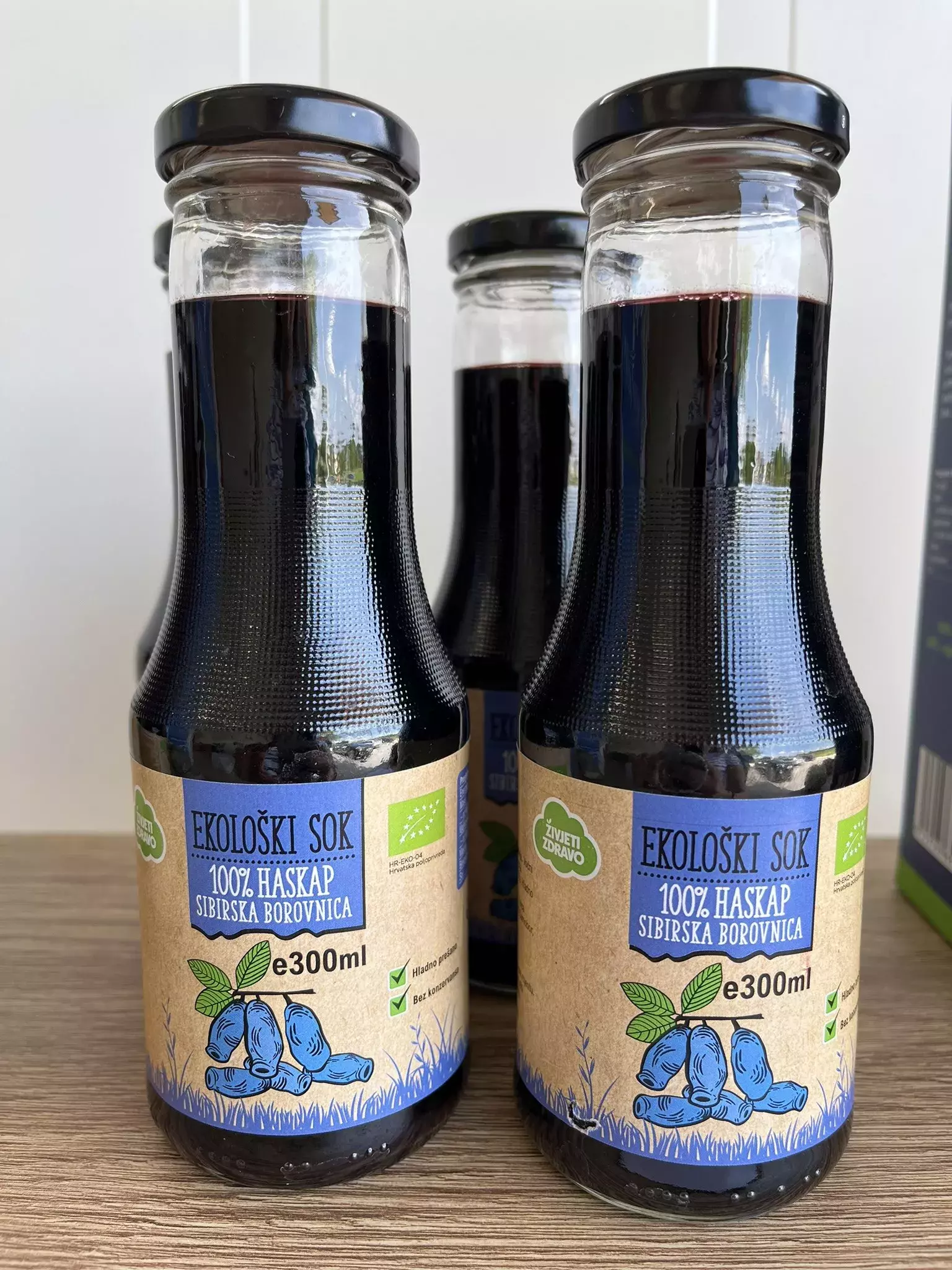
Haskap cold-pressed juice sold mainly locally to organic shops, pharmacies, and individuals.
Addressing the unmet credit demand
From 2018 to end of June 2023, HAMAG-BICRO has approved over 2 000 loans for a total amount of EUR 100.7 million. The initial allocation of EUR 35 million was increased several times due to high interest for these loans. From all approved loans, 95% refer to investments in agricultural mechanisation and equipment.
“Five years after it was launched in 2018, and despite some reluctance on the farmers side towards repayable financial instruments in comparison to grants, that were more common in farmers segment, results clearly show a transformation in farmers’ behaviour and expectations regarding the possibilities of financing necessary investments”, states Ivan Križanović while he points out: “This clearly shows us that this financial instrument met farmers’ needs mostly as regards the renewal of old agriculture mechanization systems and that it also had a significant impact on the fulfilment of the goals defined in the ex-ante analysis (renewing old agricultural mechanization and equipment)”.
Investing in renewable energy production to reduce bills
Mr. Babojelić is no exception to the general trend and need for investments in renewable energy and energy efficiency as found by the most recent fi-compass survey report on the EU24 agriculture sector. He has managed to limit the consumption of water on his farm, especially during summer months, with his own water source on the plantation and arranged irrigation system with micropipes using a drop-by-drop system directly for each plant, reducing the consumption of water and fertilisers. He was also able to save 70% on his energy bills by installing solar panels on his fruit processing facility. In the future, he plans the reconstruction of additional solar panels over the entire plantation to shade the plants and protect them from direct sunlight. Mr. Ivica Babojelić would then hand over all excess solar energy to the local power company.
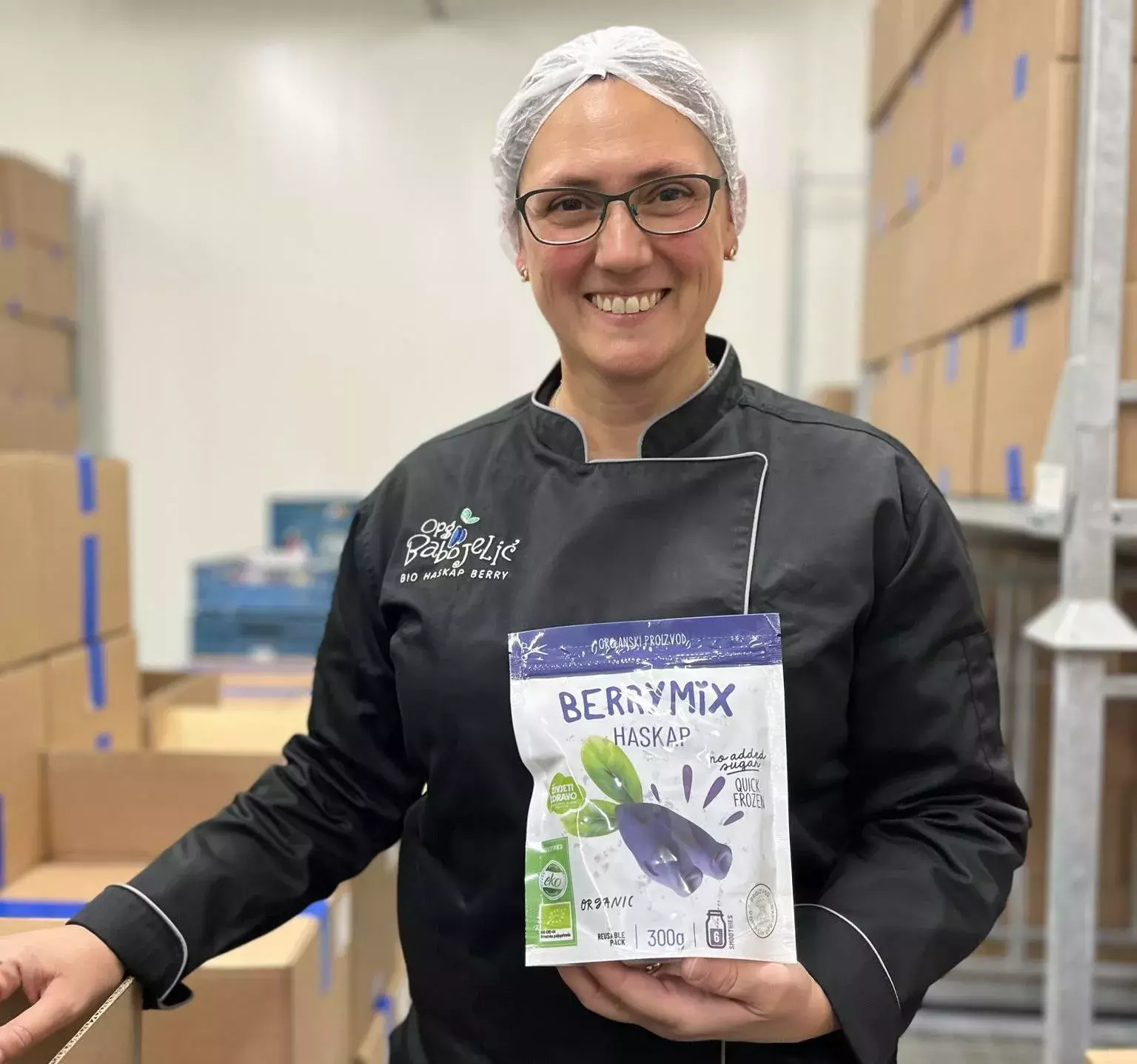
Haskap berries are very high in vitamin C, and like many purple fruits, contain high levels of antioxidants. One can find OPG Babojelić products as raw, dried, pressed fruits or as delicious organic jams.
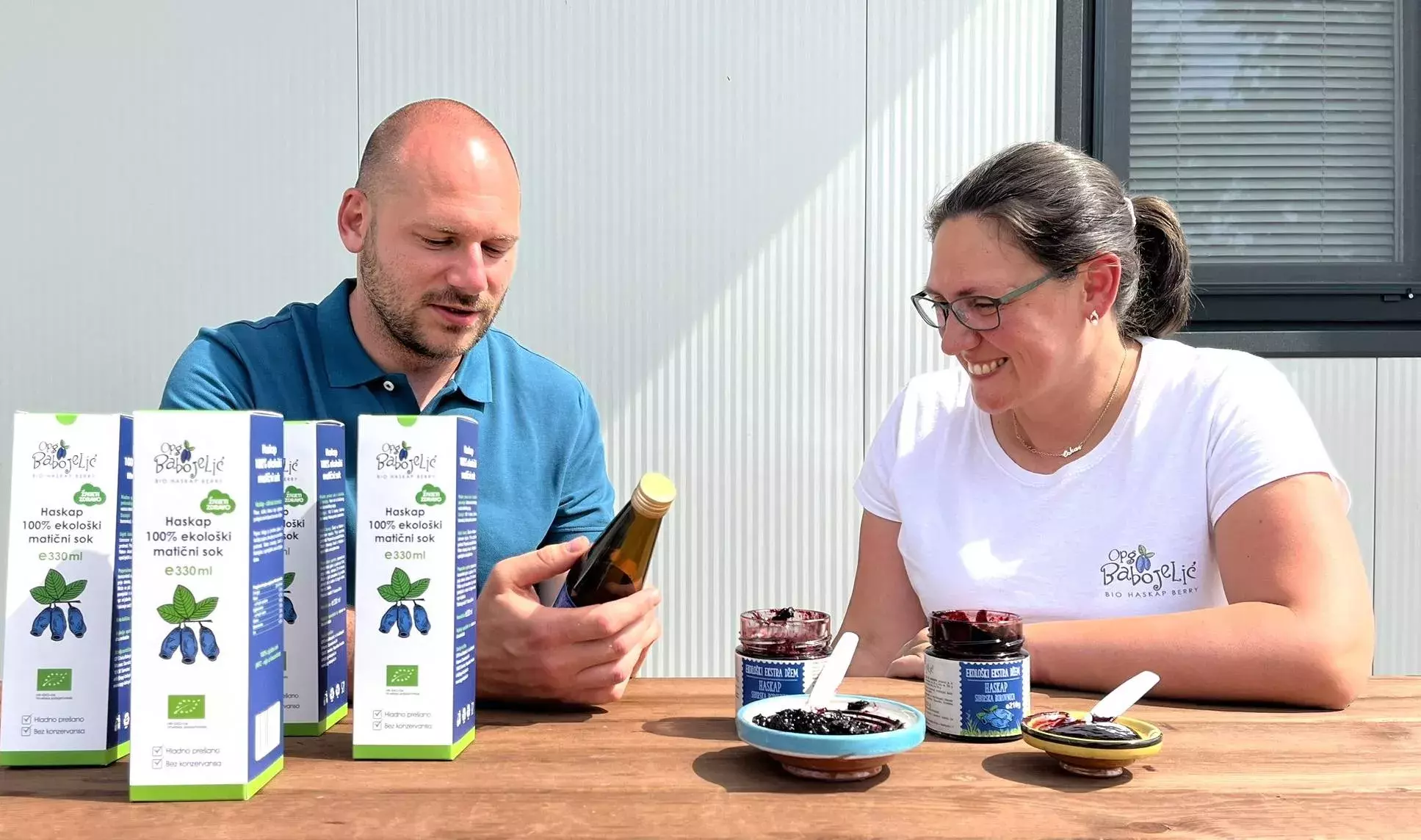
Thanks to hard work and an entrepreneurial spirit, OPG Babojelić is now a successful family business.
Soft fruit production, a long history in Croatia
The story of soft fruit production in Croatia dates back to the early 1930s when strawberry production technology was imported from California. The second World War interrupted the production, which was revived only in the 1970s with Italian additions: varieties, irrigation and fertilisers. During that time, Croatia exported strawberries to Germany. Unfortunately, production was once again destroyed by the war (1991-1995).
Another trend, though still in its initial phase, is the increasing customers’ preference for ecologically grown products that contribute to their healthy lifestyle and diets. In the country, there is about 50 ha of ecologically grown blackberries, 20 ha of raspberries, 20-25 ha of blueberries and 100 ha of aronia berries, with 80% of the market concentrated in Zagreb. A trend that Ivica confirms: “For berries, there is still room for new and quality organic berry producers, because more and more people are looking for locally produced fruit, especially organic ones”.

“I would recommend other managing authorities use financial instruments as part of their CAP strategic plans and also use the targeted coaching service of fi-compass and the EIB as it helped Croatia very much”
Marija Vučković, Minister for Agriculture
About the micro and small loans for rural development 2014-2020
The objective of the micro and small loans for rural development 2014-2020, Croatia is to overcome the reluctance of the banking system in Croatia to lend to farmers, particularly micro producers and young farmers starting their business, mainly due to a perception of higher risks when lending to the agriculture sector. The scheme reduces the cost of credit for final recipients compared to market rates and helps generate loans that would otherwise not be approved. Micro and small loans are provided by the implementing body, the Croatian Agency for SMEs, Innovation and Investment (HAMAG-BICRO), at favourable conditions with lower interest rates and reduced collateral requirements.
The instrument was launched in 2018 with a budget of EUR 17.65 million (EUR 15 million from EAFRD and a national contribution of EUR 2.65 million). Final recipients immediately showed significant interest, with the first investments being made in October 2018, leading the managing authority of the Croatian Rural Development programme 2014-2020 (Ministry of Agriculture of the Republic of Croatia) to increase the instrument’s budget three times. After the latest increase in April 2023, the RDP allocation was EUR 90.7 million (EUR 77.1 million from EAFRD and EUR 13.6 million national contribution).
The financial instrument supported more than 2 000 final recipients with micro loans from EUR 1 000 to EUR 25 000 and small loans from EUR 25 000 to EUR 100 000 for a total of EUR 100.7 million.
For more information, check out the case study on the micro and small loans for rural development 2014-2020.
Ivica’s story: microloans to boost organic blueberry production
